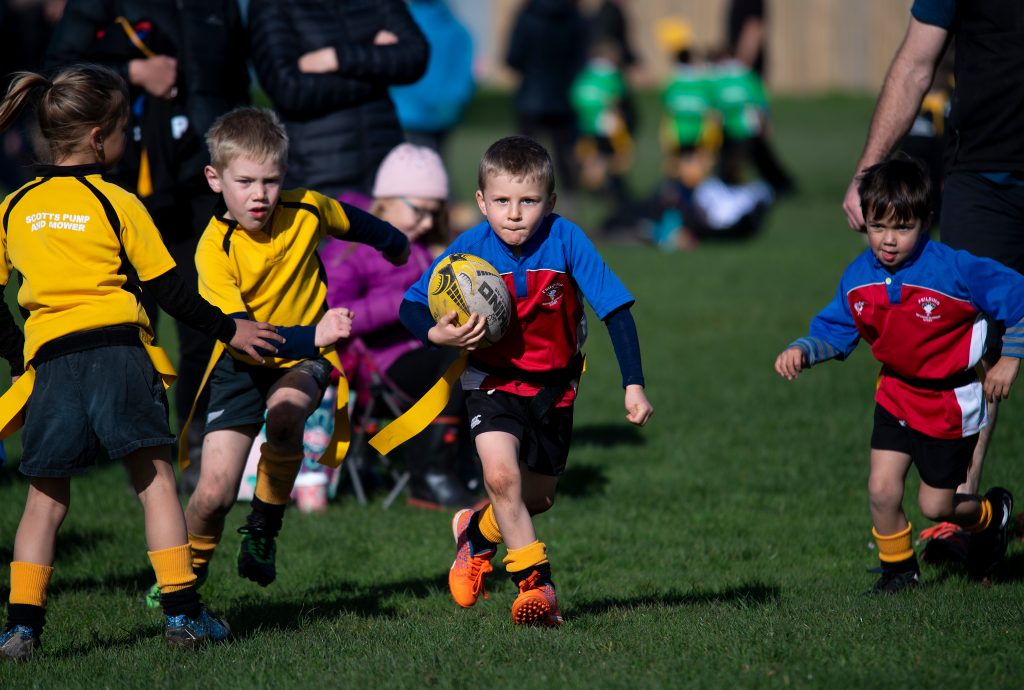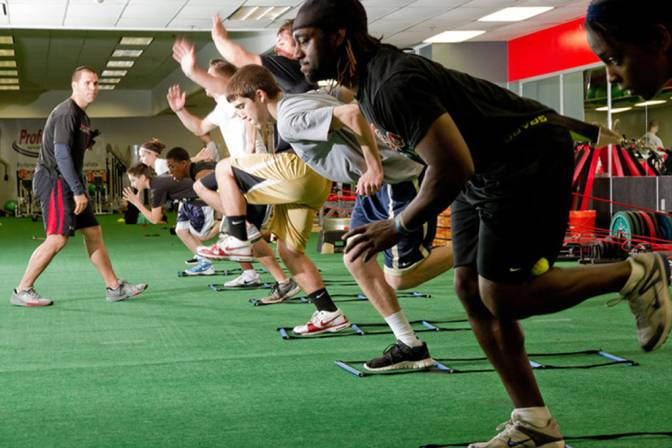How to Start Coaching

How to Start Coaching
By Wayne Goldsmith
If you’re already an experienced coach, how would start coaching career all over again?
Knowing what you know now – how would you start again – and build a sustainably successful coaching career?
Or maybe you’re just starting out on your coaching career and you’re not sure what path to take.
What’s the best way to build the foundations, skills, knowledge and capabilities you’ll need to be a successful coach?
Do it the way everyone else does it??? No!
The usual way to start a coaching career is to enroll in a coaching course. There are some excellent coach training program options available including those offered by National Sporting Organisations, Universities and increasingly coaches can study on-line through a wide range of on-line coach training and development services.
However, just as passing a learner driver’s licence test does not make you an outstanding driver, sitting in a class room for two days staring a seemingly endless flow of blue power slides with yellow text and passing an open book exam is only the first step of your coach education journey.
And if your ambition is to be an outstanding coach – then following the same learning path of every other coach is not the road to success you may believe it to be.
Dare to be different!
So, how would you start – or start again – if you had the chance?
1. Start with an understanding of psychology FIRST.
When you start out coaching, it would be fair to say that the most obvious aspect of sport to focus on is physiology. Those first few months learning sets, reps, cycle times, intensity levels, load management, skills, drills and other variables seem to pre-occupy every waking coaching moment. Coaches love to talk training sets and to swap drills. There is a limitless supply of practice routines and program ideas on the internet.
However as you progress, you start to understand that although the physiology of training and competition (i.e. WHAT the athletes do) is important – even more important is the psychology of practice and performance (i.e HOW the athletes do what they do).
2. Develop a clear understanding of your own motivation for coaching.
Before you step on deck or onto the park or into the arena for the first time as a coach, go for a long walk. Or find a quiet place near the beach or on a hill and ask yourself – “why do I want to coach”. Then – when the little voice inside your head says “because I love sport” or “to give something back to the sport” – immediately disregard it.
Reject your first one, two and even three answers and dig a bit deeper. Understanding why you coach is the first big step into developing a clear coaching philosophy and to creating a set of personal coaching standards, values and principles that will guide you throughout your coaching career. So….why do you coach?
3. Spend time understanding yourself.
And following on from “why do I coach?” – is taking time to really understand who you are. What makes you happy? How do you react to pressure and difficulty? What excites you? How are you at managing difficult conversations and conflicts?
Before you can hope for anyone else to understand you, connect with you and “get” what you’re about, you first need to understand yourself.
The moments that will define your coaching are not those with a stop-watch in your hand: they’ll be the times when you need to make challenging decisions, inspire athletes during difficult times and stand tall when your values and principles are challenged.
4. Master the use of available technologies.
Modern life is largely driven – right or wrongly – by our engagement with technology – and it’s had – and will continue to have – a significant impact on coaching.
For example, one of the greatest ever coaching tools is the Smartphone because it puts high quality video technology with immediate playback features into the hands of coaches everywhere. For a few dollars you can buy simple to use video analysis APPS – purpose designed for sport coaches, technology that only a few years ago cost thousands of dollars to purchase and three years at University to learn how to use. You can video athletes, discuss the video with them immediately during training and email it to them so they’ve got it at home to watch and learn from before they attend their next training session.
You can create online learning networks with your players and share ideas, technique videos and training program updates. You can send parents updates on training, upcoming meets and information about nutrition, sleep management and quality sports-parenting.
Master the use of the available technology – the future of coaching is right here – right now and it’s in your pocket.
5. Build a social program based on fun, families, friendships and fun. (Yes – I know I said fun twice).
Take a look at the sport drop-out rate in the mid teen years and you’ll note that competitive sport has a big problem retaining participants. All the major sporting nations have spent considerable time and money trying to figure out why – but the bottom line is – if the “relationship” or situation you’re in in not meeting your needs and you can’t change it – you’ll leave it.
Human beings in their mid-teens are motivated by many things but perhaps their peer group relationships are of most importance to them. If your coaching program is based on hard work, discipline, commitment and sacrifice – you’ll attract a certain type of athlete with a specific set of goals.
However, if you want to retain them in your program, even the athletes with the highest of Olympic ambitions will not be around long enough to realize their potential unless they’re enjoying their training and have strong friendships in the team. There’s nothing wrong with hard work. Commitment is at the heart of all great human endeavors. But unless the environment is a balance between excellence and enjoyment, even the most talented athletes will seek alternative programs or even non sport alternatives.
6. Have a simple, clear and effective load management model.
Volume of training, i.e. how much training your athletes do is important to know. However, understanding their overall “load” physical and mental – is critical.
Read, listen, watch and learn from the abundance of information available about load management and develop a simple system which helps you and your athletes to understand clearly how hard they are working physically and mentally.
7. Make a commitment to honest daily self-reflection and continuous improvement.
No matter how long you’re in coaching you can always learn, improve and get better at what you do. No coach knows it all, but the great ones are committed to learning and improving every day. This learning lifestyle underpins long term success in every walk of life and is an essential aspect of developing a sustainably successful sport coaching career.

No matter how much you think you know, you can always learn and improve.
8. Develop a holistic athlete development “model” – know exactly what is it you are trying to do.
Think about the sport you coach. What is it to you? Is it a technique based sport which demands an uncompromising focus on skills and biomechanics? Is it a physiology driven sport which necessitates a relentless commitment to hard work and endurance training?
Before you start coaching – have a clear vision of what the “end-point” is and a detailed understanding about what it is you’re actually trying to do. It will make the journey so much simpler, direct and easier.
9. Avoid the “more-is-better” trap.
More is not better – unless doing more will make you better.
There is no doubt success at any level of any sport demands a degree of hard work. However, many traditional models of athlete development have relied on almost exclusively on increasing training volume with age, i.e. as the athlete gets older, they do longer and more training sessions.
There is no “one-size-fits-all” model to develop athletes and the “more-is-better” philosophy is not going to work with every athlete. Become a master of designing training programs to meet the specific needs of each individual in the team and make the athlete the focus of everything you do.

Do Not Worship Physical Talent! Coaching is so much more than obsessing about size, speed and strength.
10. Think about talent differently – don’t be obsessed with physical talent.
Ostensibly your coaching “status” and accreditation level is dependent on the standard of athletes in your team. It’s a common mistake to believe that if you’re coaching national level athletes, you’re considered to be – by your peers and the “market” – a better coach than someone who is coaching club and local level athletes. As a result, the temptation is to blindly chase those athletes who are physically gifted and “naturally” talented so that you can coach better athletes and achieve higher levels of coaching success.
Physical talent is over-rated. It is a poor indicator of ultimate success. The record of athletes who are brilliant at 8, 9, 10 and 11 years of age is appalling in terms of their achievement of higher level success in their mid to late teens. Yet coaches (and parents) will become obsessed with these talented youngsters and do anything to attract and retain them in their programs. Forget it!
Stay true to your values, beliefs and standards: do not worship physical talent – particularly in pre-teenage athletes and focus on helping them to become wonderful people first and foremost.
11. Think about parents differently – engage with them as partners.
Parents can be powerful allies in your coaching program. They have an important role to play – particularly with young athletes in the areas of character development, teaching values and virtues, time-management, nutrition, sleep and study skills. Conversely parents can be negative, destructive and divisive and make coaching difficult.
Think about sporting parents differently. Communicate with them often, openly, honestly and in person. Educate them how to be outstanding sporting parents. Be very clear with them about your expectations of their behaviors and attitudes when they are around your program, at games, at training and other program activities. And – if they are consistently negative and destructive to your program, be prepared to remove them from your environment – irrespective of their child’s talent.
12. Find a “second-obsession” and commit to it.
One of the best swimming coaches and leaders in Australia Don Talbot was a collector – coins, stamps, models and other collectables. Bill Sweetenham – another great Australian swimming coaching legend is passionate about history, art and culture.
Many great coaches have a second passion – other than sport- which fuels their imagination, fires their creativity and gives them a mental break from the pressures of preparing and leading world class athletes. What’s yours?
13. Creativity and innovation are everything! Copying kills.
The easy access to knowledge and information on the Internet and the abundance of Smart-Phone technology means anyone, can get anything, anywhere, anytime and usually for free. Coaching is no longer defined by how much you know: it is defined by how creative and innovative you are and by your capacity to create new ideas, new directions, new training concepts and new approaches to helping athletes realize their peak potential.
Read about how the great innovators thought and practiced.
Gain an advantage in your coaching by thinking things and doing things first.
14. Understand leadership – particularly how you lead and create an environment where leaders grow and flourish around you.
Good coaches coach – great coaches lead. Leadership is more than being a good public speaker. It’s about having a clear vision for the future of your program, your team and your sport and guiding, directing and planning for sustainable success while inspiring others to see that vision as clearly as you do.
15. Create strong working relationships with coaches in other countries and with coaches in other sports.
Believe it or not, the sporting world is relatively small and there’s a bond between coaches everywhere. Coaches all over the world are dealing with the same issues: finding facilities, dealing with Committees and parents, finding ways to inspire athletes, balancing their lives….these are universal coaching issues. By developing relationships with coaches in other nations and in other sports, not only do you learn more about your industry and “art” form but you find like-minded individuals with whom you can share ideas, problems, challenges and victories.
16. Find at least one honest mentor, i.e. someone who will be honest with you.
One of the best ways to learn, grow and improve as a coach is to regularly spend time with a mentor – someone who will be direct, honest and critical of your coaching.
The big mistake many coaches make when they seek a mentor is to find someone they like personally, i.e. someone they get along well with socially. If you’re looking for someone to drink coffee with and talk about the latest football scores then this is a great strategy.
If however, you’re passionate about coaching and want to improve then find someone you respect, someone who understands coaching (but not necessarily coaching your sport specifically) and most importantly someone who will give it you straight when and where needed.
17. Become a student of technique and a master of the technical skills of your sport.
It’s relatively simple to learn how to write workouts and training sessions. You can do them yourself, ask a senior coach to swap some ideas with you or even – if you have to – you can buy them on line. However, the real “art” of coaching is understanding the unique technique and skills of your sport.
Spend time learning, mastering and understanding the coaching of all the basic techniques and important skills of your sport. This aspect of coaching – the “art” of sport – will drive much of the success you will experience in your coaching career.
18. Take care of yourself – physically and mentally and the relationships that matter in your life.
Coaches are notoriously bad at taking care of themselves.
How many times for example have you insisted on athletes having their own water bottle at training so they can re-hydrate during and after workouts, but then never stop for a drink break yourself? You tell athletes to snack on healthy protein and quality carbohydrates immediately after training, then stop off for a burger and fries for your own dinner because you’re too tired and fatigued to get home and cook a healthy nutritious dinner.
Take care of yourself when you start coaching!
Summary:
1. Not many people have the capacity to “start-again”. Most coaches commence their coaching career by completing a coaching course then just start coaching – repeating the same programs, the same sets, the same practice routines and the same sessions over and over. The great coaches see coaching as a learning journey – where every day is an opportunity to learn, improve, innovate and create new and better ways of doing things.
2. It’s never too late and you’re never too old! No matter how long you’ve been coaching – no matter how many candles are on your birthday cake – you can change the way you coach and you can adopt a learning mindset where continuous improvement becomes inevitable.
Web: www.wgcoaching.com
You Tube: http://www.youtube.com/wgcoaching
Podcast Channel: https://podcasts.apple.com/nz/podcast/sports-thoughts/id1451687616
TWITTER https://twitter.com/waynegoldcoach
FACEBOOK https://www.facebook.com/waynegoldcoaching
INSTAGRAM https://www.instagram.com/wgcoaching/
LINKEDIN https://www.linkedin.com/in/wayne-goldsmith-coaching/


2 Comments
Michael Taylor · August 2, 2023 at 9:58 pm
“Just started my coaching journey, inspired by this read! Wayne Goldsmith’s insights are incredibly intuitive and easy to digest. I’ve already started implementing some tips with my youth basketball team, and I can see the positive impact. Truly transformative – thank you, Wayne!”
The Marketing Myth - Over-promising and Under-delivering. - New Sport · October 31, 2019 at 1:36 pm
[…] waste of time and money unless you’re prepare to invest at least as much or even more on training, educating and developing the coaches, officials, parents and club administrators delivering the experience of your […]